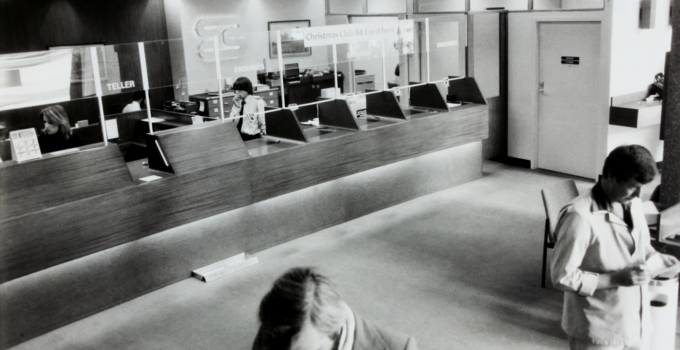Ah, the credit score. In the US, your credit score is a powerful measure that heavily influences your financial life. (I’m going to talk about the US credit score and not the German SCHUFA here.) Everything from what credit cards are available to you to whether you can rent a home is affected by your credit score. So let’s talk about what a credit score is and how you can build yours!
What is a Credit Score?
A credit score is a number from 300-850 that reflects a person’s likelihood of repaying loans and debts. Your credit score assumes that your behavior will continue as it has been in the past, so if you’ve been in a rough patch, it will take time to repair that score and put enough good history on record to balance out the bad.
Your credit score will largely determine the interest rates on any credit lines or loans you take out. The rationale is that banks and lenders can check how reliable you are at paying money back and adjust their risk with the interest rate. Less likely to pay your bills on time? A higher interest rate will help banks recoup the cost of missed payments.
Note that the range is 300-850, but anything over 700 is considered a good score and will qualify you for lower interest rates and discourage landlords from looking askance. When you come in under 700, you run the risk of needing a cosigner for loans and leases.
What Makes Up a Credit Score?
There are three major national credit reporting bureaus. These are the guys that calculate your credit score. Several smaller ones exist, but these three dominate the field: Experian, Equifax, and TransUnion.
Your score will vary slightly among these bureaus because they each have their own closely-held methods to calculate the scores. But they all consider the same factors when calculating your credit score. The first two account for over 50% of your credit score, so if you have work to do, that’s where to start!
Payment history
This one is one of the two most important factors, and it’s pretty simple: do you pay your bills on time? And to maximize this part of your score, the technique is simple. Pay your bills on time.
A couple tips for making this part effortless: set up autopay! And if autopay doesn’t work for you (or if it’s not available for a bill), try contacting the lender to see if you can change the due date. Having one big Bill Pay Day every month will help you make every payment.
Credit utilization
This is the second of the two most important factors. Credit utilization is the percentage of available credit that you’re using. The rule of thumb is to keep your utilization below 30%, so if you have a credit card with $1,000 limit, keep the balance below $300.
If you’re working on repairing your credit, this is a great place to start, because once you pay your credit cards down, this portion of your credit score will update. It’s a snapshot in time rather than a trend over time (unlike most of the factors in your credit score).
One more note: there’s a credit score penalty if your credit utilization is 0%! If you’re not using your credit cards for regular monthly expenses, it might be worth it to pick one monthly bill (Netflix? Spotify?) to put on a credit card to make sure you are using your available credit.
Length of credit history
This one is the most obnoxious to fix. It’s literally the average age of your lines of credit. To boost this factor, you just have to wait and keep your lines of credit open. If you have kids, you might consider opening a secured credit card for them as soon as they’re old enough to use them responsibly.
Another shortcut for boosting the length of your credit history is to be added as an authorized user on someone’s long-standing credit line. But if you don’t have that option, make sure you have at least one credit line that is aging, and sit back and wait.
Credit Mix
We’re getting into small potatoes in terms of impact on credit score with these last two factors. But if you’re looking to buy a house soon, a few points could mean thousands in saved interest expense. Lenders like to see a variety of credit lines in your history. Maximize this factor by having a mix of credit cards and what they call “installment accounts” – student loans, cars, mortgages, anything that has a fixed monthly payment.
Recent Applications
I’ve heard the wisdom to “not check your credit too much” because credit checks will put a ding on your score. But this only applies to hard inquiries. A hard inquiry happens when you apply for a new line of credit. A soft inquiry happens when you check your score or when a lender checks for preapproval without intent to open a new line of credit.
A hard inquiry will knock a few points off your score for up to 12 months. The only way to shed this penalty is to wait. To maximize this factor, be deliberate when you open lines of credit and don’t do it too often.
How Do You Check Your Credit Score? And What if it’s Wrong?
By federal law, you are allowed to request a free credit report from each of the three main bureaus every 12 months via AnnualCreditReport.com. And until April 2021, you can request one from each bureau every WEEK.
I recommend setting a reminder on your calendar every four months to request from one of the bureaus. Request from a different one every time. It’s a simple system to ensure both that you don’t forget and that you get reports from all three bureaus.
When you get your credit report, everything on it should be familiar. But if there’s an error, there’s a section on this page from USA.gov describing how to dispute it. Don’t sleep on these things, people! A credit bureau is required by law to investigate these claims, so be diligent.




